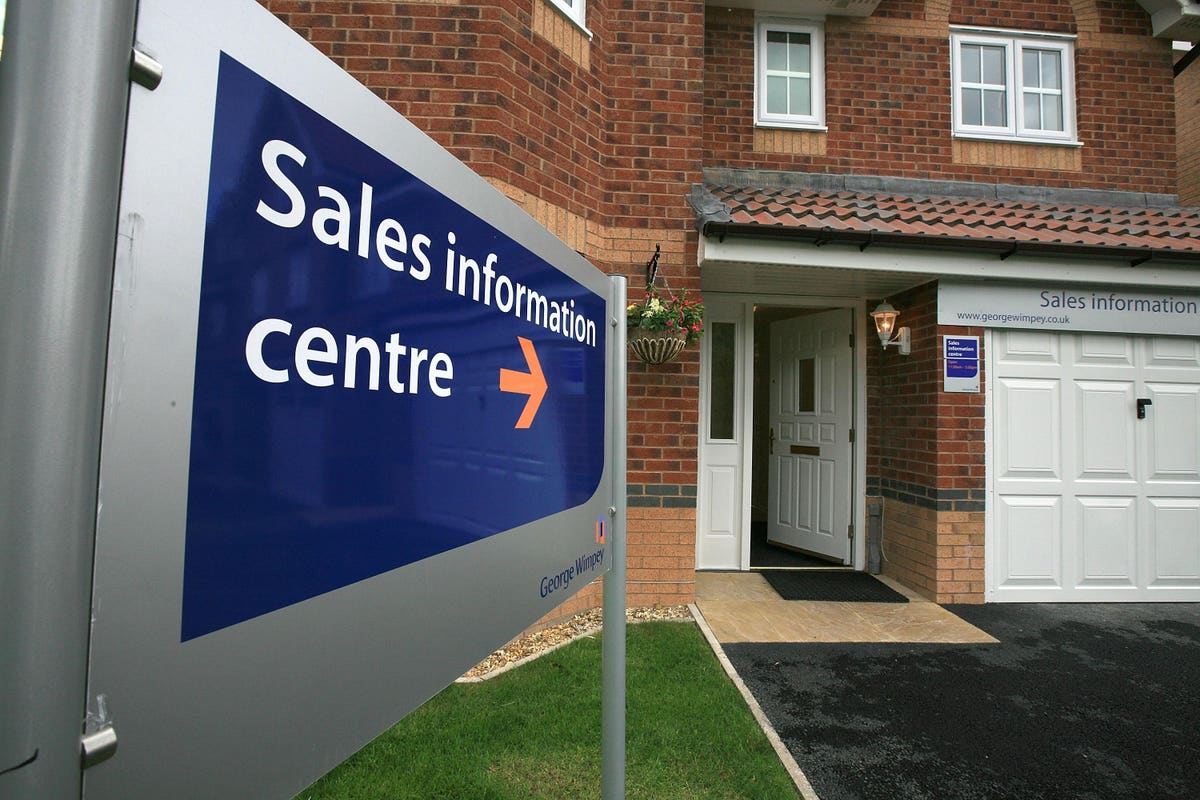Housebuilder Taylor Wimpey was one of the FTSE 100’s biggest gainers on Wednesday after it printed better-than-forecast numbers for the first half of 2023.
However, both revenues and profits were sharply down as higher interest rates dampened demand across the residential property market.
At 116.9p per share the Taylor Wimpey share price was 2.4% higher on the day.
Revenues at the construction giant slumped 21.2% between January and June, to £1.6 billion. This caused a 28.9% slide in pre-tax profit, to £237.7 million.
Completions Topple
Taylor Wimpey said that total completions (excluding joint ventures) fell more than a quarter year on year, to 5,082, “following a slow down in the UK housing market during the latter half of 2022.” Meanwhile, its total order book fell to 7,866 homes on a comparable basis from 10,102 a year earlier.
Net private sales rate dipped to 0.71 per outlet per week from 0.9 over the period. However, it said average selling prices across its portfolio rose 6.7% to £320,000 thanks to “house price inflation and positive mix impacts.”
A blend of higher costs and fewer completions meant the firm’s first-half gross margin dropped to 21.6% from 25.3% in the same 2022 period. But net cash edged 1.9% higher, to £654.9 million.
Taylor Wimpey lifted the half-year dividend to 4.79p per share from 4.62p previously.
Full-Year Sales Seen at Higher End of Guidance
Chief executive Jennie Daly commented that “the first half of the year has been characterised by variable market conditions including substantially higher mortgage rates. While this has inevitably impacted our results, I am pleased that we have delivered a resilient performance with first half completions slightly ahead of our expectations.”
She added that “with a healthy orderbook and strong underlying interest for our well-located, high-quality homes, we expect full year UK completions excluding joint ventures to be in the range of 10,000 to 10,500, the upper end of our previous guidance.”
Group operating profit included joint ventures, meanwhile, is expected to be between £440 million and £470 million for the full year. That’s down from £923.4 million the company achieved in 2022.
“Mixed Picture”
Andy Murphy, director at Edison Group, said that Taylor Wimpey’s update “constitutes a clear case of ‘it could have been worse’, as a weakening property market and high operational costs having combined to put huge pressure on the construction sector.”
However, he added that “tight cost management, strong brand awareness, and savvy operational manoeuvres have helped to mitigate the effect of these external factors on Taylor Wimpey’s profits.”
March Crouch, analysts at eToro, said that while Taylor Wimpey expects completions to reach the higher end of guidance, “the problem is how much it can sell these homes for. With prices now falling at the fastest rate for 14 years, it doesn’t look like the market is going to get better before it gets worse.”
Data from building society Nationwide on Tuesday showed average home values drop 3.8% in July, the biggest drop since 2009.
Crouch concluded that “Taylor Wimpey is a big builder and has resources to draw upon with large net cash balances and a considerable land bank. But pressure on the market might not be so kind to some of its weaker peers.”
Royston Wild owns shares in Taylor Wimpey.
Read the full article here





